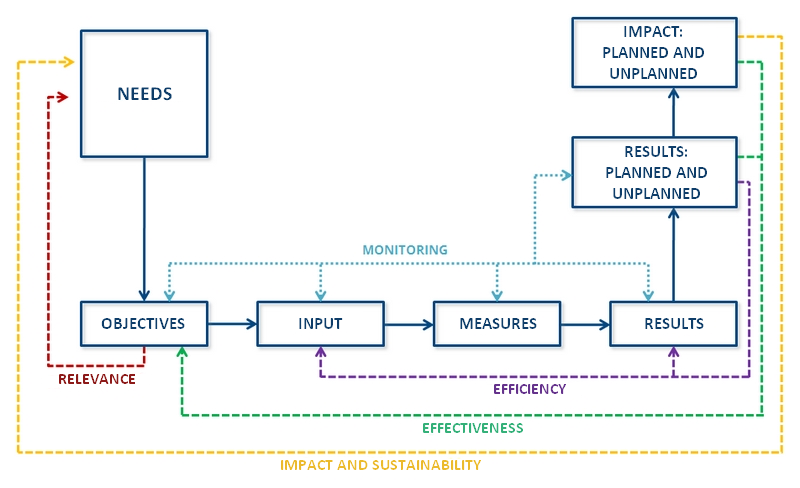The evaluation of public policies is based on several basic assumptions. Those assumptions are the basis of studies conducted by the Institute for Labour Market Analyses.
- The evaluation should be a systematic and objective assessment of the program or policy, its objectives, the implementation process and the results in terms of relevance, effectiveness, efficiency, sustainability and impact. Evaluation should provide accurate and useful information, thereby contributing to the decision-making process and the interaction of stakeholders.
- Evaluations should include social and economic indicators, reliably assess the quality and effectiveness of programs, projects and public policies. If conducted properly the advantages are as follows: integrating perspectives of stakeholders, the application of the largest possible number of sources of data and information, building confidence in research results, as well as initiating the change of the attitudes of individuals and groups towards greater openness to change, innovation and improving the quality of their own actions.
- Modern management, in public administration, must related to the concept of evaluation. This approach assumes an increase in the role of stakeholders, not only in planning and policy-making (strategic documents), but also the implementation of these policies and the completion of some of their stages. The implementation of public policies should focus on results and outcomes and on the assessment of the impact of a wider context of the program.
Institute for Labour Market Analyses takes on evaluation projects at every stage of the policy / project, carries out ex-ante, on-going and ex-post evaluation. In accordance with EU standards, IARP takes five criteria into consideration:
Relevance: is the degree to which the objectives of the project are in line with the requirements of the beneficiary, and the needs of local policies and priorities of partners and donors.
Efficiency: is a relation between the outputs, results and the resources (especially financial) intended.
Effectiveness: is the extent to which the project has achieved its objectives. Comparison of what has been done, with what was planned.
Impact: evaluation of wider consequences of intervention (economic, social, political, technical or environmental, at local, regional and national), both positive and negative.
Sustainability: is the extent of the impact of the project’s effects after its completion and probability of the continuation of the effects in the long term.
These criteria are directly related to the different parts of the program logic or public intervention (study based on DG Regio materials):












